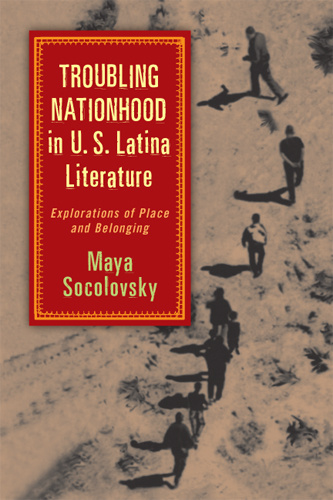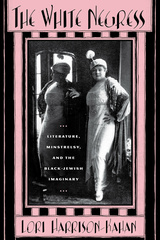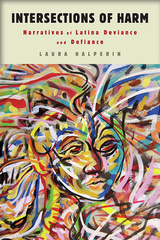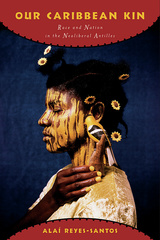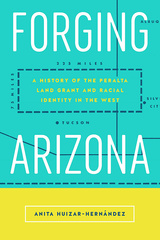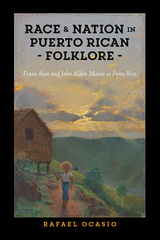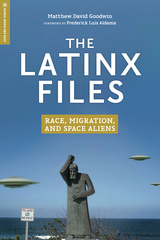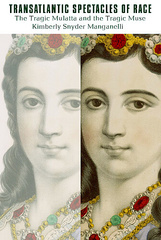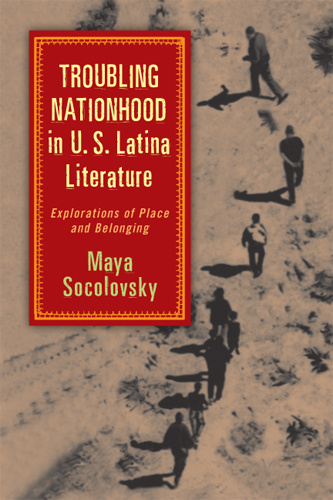
256 pages, 6 x 9
Paperback
Release Date:26 Jun 2013
ISBN:9780813561172
Hardcover
Release Date:26 Jun 2013
ISBN:9780813561189
Troubling Nationhood in U.S. Latina Literature
Explorations of Place and Belonging
Rutgers University Press
This book examines the ways in which recent U.S. Latina literature challenges popular definitions of nationhood and national identity. It explores a group of feminist texts that are representative of the U.S. Latina literary boom of the 1980s, 1990s, and 2000s, when an emerging group of writers gained prominence in mainstream and academic circles. Through close readings of select contemporary Mexican American, Puerto Rican, and Cuban American works, Maya Socolovsky argues that these narratives are “remapping” the United States so that it is fully integrated within a larger, hemispheric Americas.
Looking at such concerns as nation, place, trauma, and storytelling, writers Denise Chavez, Sandra Cisneros, Esmeralda Santiago, Ana Castillo, Himilce Novas, and Judith Ortiz Cofer challenge popular views of Latino cultural “unbelonging” and make strong cases for the legitimate presence of Latinas/os within the United States. In this way, they also counter much of today’s anti-immigration rhetoric.
Imagining the U.S. as part of a broader "Americas," these writings trouble imperialist notions of nationhood, in which political borders and a long history of intervention and colonization beyond those borders have come to shape and determine the dominant culture's writing and the defining of all Latinos as "other" to the nation.
Looking at such concerns as nation, place, trauma, and storytelling, writers Denise Chavez, Sandra Cisneros, Esmeralda Santiago, Ana Castillo, Himilce Novas, and Judith Ortiz Cofer challenge popular views of Latino cultural “unbelonging” and make strong cases for the legitimate presence of Latinas/os within the United States. In this way, they also counter much of today’s anti-immigration rhetoric.
Imagining the U.S. as part of a broader "Americas," these writings trouble imperialist notions of nationhood, in which political borders and a long history of intervention and colonization beyond those borders have come to shape and determine the dominant culture's writing and the defining of all Latinos as "other" to the nation.
Socolovsky considers how Latina fiction disrupts mainstream notions about what constitutes the US nation and national identity. Her arguments are particularly useful in discussing current debates about immigration and anti-immigration rhetoric, which links the illegal presence of Latin Americans in the US to threats this foreign culture poses to what is truly 'American.' Highly recommended.
A wonderful extended meditation on the ways Latina writers have imagined and narrated alternative notions of 'community' in which the United States and Latin America are interdependent extensions of each other rather than strictly bounded and mutually exclusive.
This timely and insightful book offers analyses of narratives both familiar and new depicting fruitfully disruptive Latina lives. Socolovsky's readings demonstrate that U.S. Latina literature is crucial to understanding how colonial legacies increasingly trouble the contemporary nation-state.
Socolovsky’s literary and cultural analysis is a significant contribution to the studies of Latina feminist literature, and at the same time validates the presence of Latinos and Latinas in the United States, pushing back the negative political and cultural rhetoric that is currently taking place in the public sphere.
Socolovsky’s...skillful reading of the texts encourages a more fluid, transnational reimaging and redefining of American cultural identity.
Socolovsky contributes to our reconceptualization of space as crucial to national identity and belonging.
Socolovsky considers how Latina fiction disrupts mainstream notions about what constitutes the US nation and national identity. Her arguments are particularly useful in discussing current debates about immigration and anti-immigration rhetoric, which links the illegal presence of Latin Americans in the US to threats this foreign culture poses to what is truly 'American.' Highly recommended.
A wonderful extended meditation on the ways Latina writers have imagined and narrated alternative notions of 'community' in which the United States and Latin America are interdependent extensions of each other rather than strictly bounded and mutually exclusive.
This timely and insightful book offers analyses of narratives both familiar and new depicting fruitfully disruptive Latina lives. Socolovsky's readings demonstrate that U.S. Latina literature is crucial to understanding how colonial legacies increasingly trouble the contemporary nation-state.
Socolovsky’s literary and cultural analysis is a significant contribution to the studies of Latina feminist literature, and at the same time validates the presence of Latinos and Latinas in the United States, pushing back the negative political and cultural rhetoric that is currently taking place in the public sphere.
Socolovsky’s...skillful reading of the texts encourages a more fluid, transnational reimaging and redefining of American cultural identity.
Socolovsky contributes to our reconceptualization of space as crucial to national identity and belonging.
MAYA SOCOLOVSKY is an assistant professor of English at the University of North Carolina, Charlotte.

